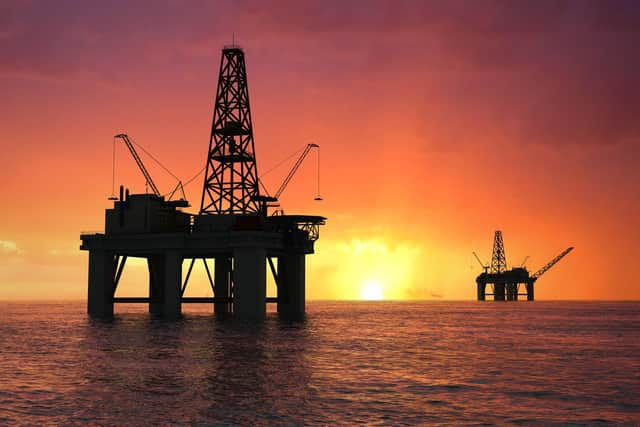Climate change goals at risk due to 'lack of clear net zero strategies' - Oil and Gas Transitions report
However, the study - produced as part of the Oil and Gas Transitions (OGT) initiative - also argues that the UK can still meet its 1.5 degree Paris climate ambitions if “clear pathways” are set out to deliver a “just transition” for the North Sea energy sector.
The report’s recommendations include measures to commit to supporting clean technologies and empowering devolved decision making.
Advertisement
Hide AdAdvertisement
Hide AdThe three countries forming the study’s focus are all signatories to the Paris Agreement to limit global warming to 1.5 degrees - but all have economies reliant on North Sea oil and gas. With Europe battling a long-term energy security crisis and governments reverting to fossil fuels, the OGT reports warn that, without “concrete” pathways for a clean and just energy transition, the 2050 climate goal is at risk.
However, the research also outlines how the experience, resources, knowledge and skills shared by Denmark, Norway and the UK could be used to lead the North Sea’s clean energy transition, creating a “global blueprint” to accelerate the phase-out of oil and gas and position the three nations as clean energy leaders.
Critical to such a transition is support for innovation and investment in renewables and low carbon technologies to replace oil and gas - both as an energy supply and as a revenue stream.
The reports make new recommendations for targeted support for technologies such as renewables and hydrogen.
Kirsten Jenkins, lecturer at the University of Edinburgh and report author, said: “There is a risk that the current energy price crisis and exponentially rising consumer bills will be used to legitimate new oil and gas developments in the UK; developments that would take place at the very moment when investments should be channelled away from fossil fuels and towards transformative, low-carbon supply and demand-side change.


“Achieving net zero targets requires decisive action from both central and devolved governments that is detached from the interests of big oil, instead focusing on tangible, renewable policy pathways to achieve a just transition for the UK population both now and in the future.”
Stuart Haszeldine, professor of carbon capture and storage at the University of Edinburgh, said: “Big oil companies claim they want to invest in the UK. So let’s make sure they do.
“This is an opportunity for the government to boost investment by enforcing clean offshore operations, such as banning all flaring of methane, stopping venting of CO2, and enforcing storage of the greenhouse gas emissions produced by natural gas burning.
Advertisement
Hide AdAdvertisement
Hide Ad“The UK can be a world leader in creating new skills for transition of the offshore workforce into a profitable green future.”
Co-led by Climate Strategies and the Stockholm Environment Institute (SEI), the initiative aims to co-develop “evidence-based oil and gas just transition scenarios” for the North Sea region, establish buy-in from key stakeholders and enable collaboration to scale up innovation and early-stage just transition efforts in the oil and gas sector.
Comments
Want to join the conversation? Please or to comment on this article.